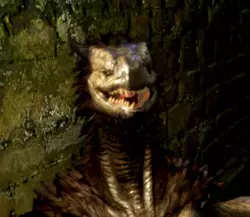deleted by creator
So few of these birds remained that their genetic diversity is a problem for reproducing the species 😕.
“inbreeding depression is a significant problem.[29] The recovery efforts are hampered especially by low fertility of the remaining birds. Genetic analyses have been employed to select captive breeding stock in an effort to preserve the maximum genetic diversity.”
This is a problem with cheetahs as well, where it’s theorized that only a small group survived the last ice age, and survived thru inbreeding. Because of this, they are essentially genetic “clones” of one another with almost zero genetic variability, and they have about a 50% chance to successfully receive transplants without the need for the medication typically required to prevent rejection. Source
Do cheetahs seem pretty healthy overall as a species even with low diversity?
They are prone to health problems, particularly those bred in captivity. Cheetahs born in captivity are prone to a disease similar to mad cow disease, which is believed to be transmissible and kills around 70% of the Cheetahs in captivity. It’s sad, but also pretty interesting. Source
This is the best summary I could come up with:
Eighteen of the birds were released in the Lake Whakatipu Waimāori valley, an alpine area of New Zealand’s South Island last week, on to slopes they had not been seen roaming for about 100 years.
“Very broad and bold.” Front-on, their bodies can appear almost perfectly spherical – coupled with the blue-green plumage, they look like a model planet Earth perched atop two long, bright red legs.
The birds had been formally declared extinct in 1898, their already-reduced population devastated by the arrival of European settlers’ animal companions: stoats, cats, ferrets and rats.
As trapping efforts have expanded, rare species are being re-introduced outside sanctuary fences: last year kiwi, the national birds, were reintroduced to wild spaces on the outskirts of the city for the first time in generations.
The release on Ngāi Tahu land is an attempt to establish the country’s third wild takahē population – and close collaboration between the government and the Indigenous tribe who will host them.
O’Regan’s father was a keen conservationist, and after a South Island doctor spotted the birds in the Murchison mountains, he attended the second expedition to find them in 1949 – with his young son in tow.
The original article contains 901 words, the summary contains 197 words. Saved 78%. I’m a bot and I’m open source!
That is a very round bird.
Removed by mod
Evolved to be more easily used as a software logo.
that roundness is from the stuff that made it so tasty. the original butterball.
I… should shut up now. before we do that thing, again.
(edit to clarify: Don’t eat them. This is great. Let them be. let them thrive. BUTTER BALLS ARE NOT FOOD.)(it helps if I keep telling myself that.)
deleted by creator
Here is an alternative Piped link(s): https://piped.video/z8wrqe72YG4
Piped is a privacy-respecting open-source alternative frontend to YouTube.
I’m open-source, check me out at GitHub.
Was it on a vacation, that it returned all of a sudden ?
It was hunted to near extinction by introduced predators and considered extinct for several decades until a handful of survivors were located in some very remote areas.
When the survivors were found, the department of conservation moved them into a breeding program on some offshore islands where they would be free from predators. Since then the population has slowly grown and predator eradication programs on the mainland have had enough success that we’re now taking a calculated risk on moving some of them back to their original habitat.
Thanks for the added context.
That username, though…
So we were aware they weren’t completely extinct since we were keeping a few around? The title makes it seem like it just popped up and was a complete surprise.
I’m sure when they were rediscovered, it was a complete surprise.
“South Island takahē were dramatically rediscovered in 1948 by Geoffrey Orbell in an isolated valley in the South Island’s Murchison Mountains”
Once thought extinct.
Before some were found, they were thought to be extinct.
This happens more often than you would expect. Many animals have been declared extinct for a long time only to return. It happened with ivory billed woodpeckers in the US
One more for the list







